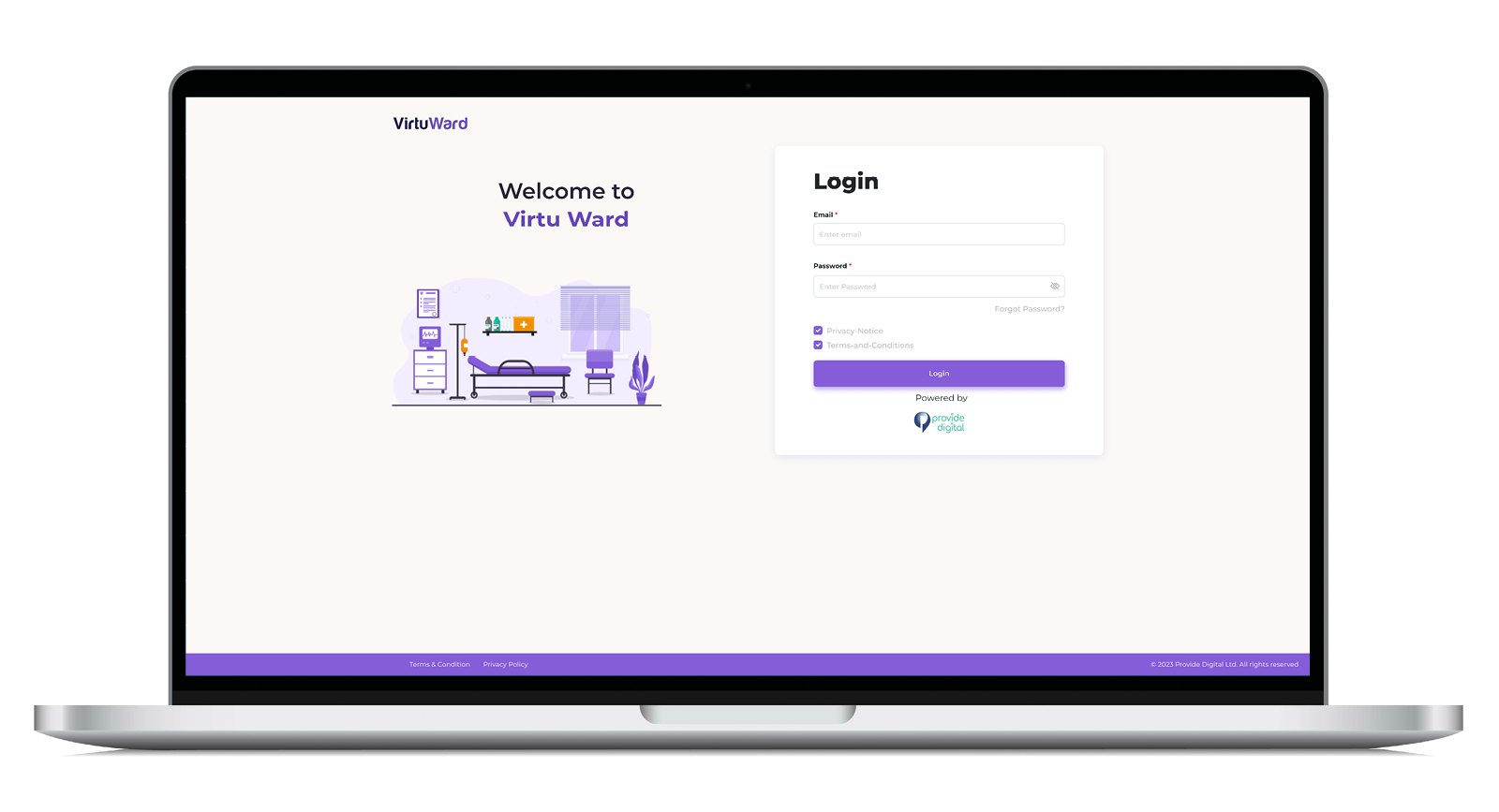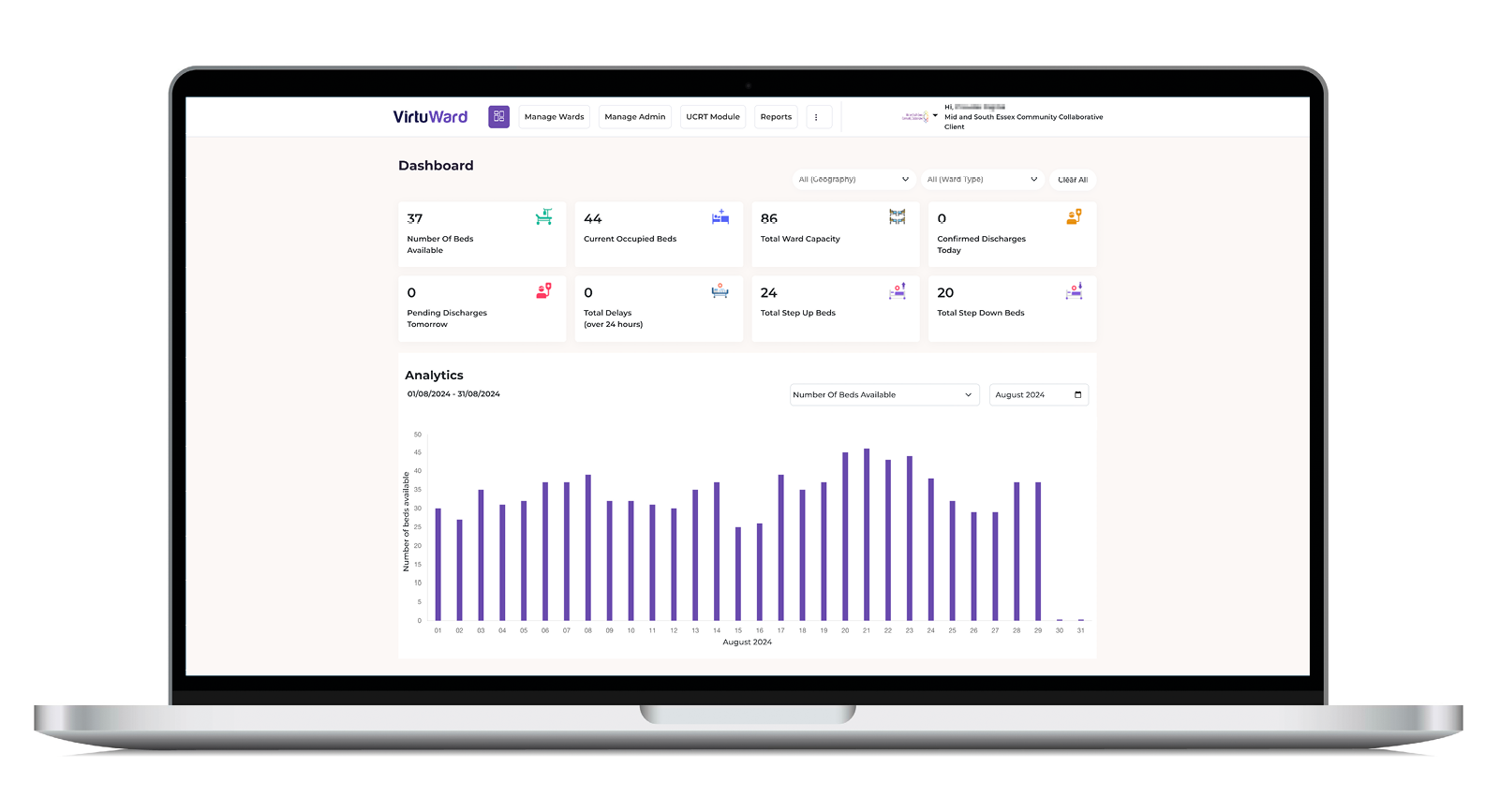VirtuWard
The background
VirtuWard was developed in response to growing demand for efficient remote healthcare management. With healthcare systems under unprecedented pressure during the COVID-19 pandemic, it became evident that innovative solutions were needed to manage patient care beyond traditional hospital settings. VirtuWard was designed to address these challenges, offering a robust digital platform for healthcare administrators to effectively manage virtual wards.
The solution
Traditional healthcare settings faced challenges like bed shortages, high infection risks, and inefficient resource allocation. VirtuWard addresses these issues by allowing healthcare providers to oversee patient care remotely. This approach helps free up hospital beds, reducing infection risks, and ensuring better resource management.

How it works
VirtuWard integrates seamlessly with existing healthcare management systems, providing administrators with tools to track and manage patient care remotely. It leverages data from various sources to offer a comprehensive view of patient status and ward performance.
Expand on Key Functions:
- Remote Monitoring and Management: Administrators can monitor patient status, track progress, and manage care plans remotely. This includes tracking vital signs and other health metrics.
- Resource Allocation: Helps in the efficient allocation of healthcare resources such as staff, equipment, and hospital beds, ensuring optimal use.
- Data Integration: Integrates with other healthcare systems to consolidate patient data, providing a unified view for better decision-making.
VirtuWard is built with stringent security measures to ensure data protection and compliance with GDPR and NHS guidelines. It employs advanced encryption methods, secure user authentication, and regular security audits to safeguard patient information and maintain data integrity.
The benefits
VirtuWard provides a digital platform for healthcare administrators to manage and monitor virtual wards efficiently.
Key benefits:
- Resource Optimisation: Allows healthcare administrators to allocate resources more effectively, ensuring that hospital beds are available for those who need them most.
- Reduced Infection Risks: By facilitating home-based care, it helps reduce the risk of hospital-acquired infections.
- Improved Coordination: Enables better coordination and communication between different healthcare providers, ensuring seamless care delivery across various settings.
Benefits for your organisation:
- Enhanced Efficiency: Organisations can streamline their operations, reducing the burden on hospital infrastructure and improving overall efficiency.
- Cost Savings: Minimises the costs associated with extended hospital stays and resource mismanagement.
- Scalable Solution: Designed to scale with the needs of growing healthcare systems, making it suitable for a wide range of healthcare providers.

View our other solutions
We are experienced in understanding how to address all stakeholder needs when designing a solution and have experience helping numerous healthcare systems, hospitals, and trusts with their digital transformation.
Awards
VirtuWard earned the Best Solution for Community Care, revolutionising care delivery for patients with complex needs by offering real-time monitoring and enhanced home-based care, significantly improving outcomes for both patients and clinicians. These accolades reflect our commitment to transforming healthcare through innovation.

